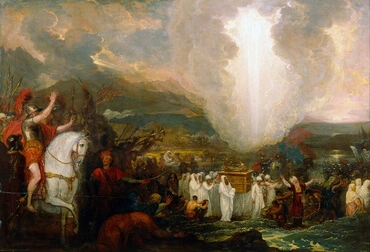1
OR i Capi delle famiglie paterne della nazione de’ figliuoli di Galaad, figliuolo di Machir, figliuol di Manasse, delle nazioni de’ figliuoli di Giuseppe, si fecero innanzi, e parlarono in presenza di Mosè, e de’ principali ch’erano Capi delle famiglie paterne de’ figliuoli d’Israele,
2
e dissero: Il Signore ha comandato al mio Signore di dare il paese in eredità a’ figliuoli d’Israele, a sorte; e oltr’a ciò, al mio Signore è stato comandato dal Signore di dar l’eredità di Selofad, nostro fratello, alle sue figliuole.
3
Ora, se elleno si maritano ad alcuno dell’altre tribù de’ figliuoli d’Israele, la loro eredità sarà ricisa dall’eredità de’ nostri padri, e sarà aggiunta all’eredità della tribù di quelli a’ quali si mariteranno; e così sarà diminuito della sorte della nostra eredità.
4
E anche, quando i figliuoli d’Israele avranno il Giubileo, l’eredità di esse sarà aggiunta all’eredità della tribù di quelli a’ quali si mariteranno; e così la loro eredità sarà ricisa dall’eredità della tribù de’ nostri padri.
5
E Mosè diede comandamento a’ figliuoli d’Israele, secondo la parola del Signore, dicendo: La tribù de’ figliuoli di Giuseppe parla dirittamente.
6
Quest’è quello che il Signore ha comandato intorno alle figliuole di Selofad, dicendo: Maritinsi a chi aggraderà loro; ma pur maritinsi in alcuna delle nazioni della tribù del padre loro.
7
E non sia trasportata tra’ figliuoli d’Israele, alcuna eredità di tribù in tribù; anzi attengasi ciascuno de’ figliuoli d’Israele all’eredità della tribù de’ suoi padri.
8
E maritisi ogni fanciulla, che sarà erede, fra le tribù de’ figliuoli d’Israele, a uno della nazione della tribù di suo padre; acciocchè i figliuoli d’Israele posseggano ciascuno l’eredità de’ suoi padri.
9
E non si trasportino le eredità da una tribù all’altra, anzi ciascuna tribù de’ figliuoli d’Israele s’attenga alla sua eredità.
10
Come il Signore avea comandato a Mosè, così fecero le figliuole di Selofad.
11
E Mala, e Tirsa, ed Hogla, e Milca, e Noa, figliuole di Selofad, si maritarono co’ figliuoli de’ loro zii.
12
Così furono maritate a mariti ch’erano delle nazioni de’ figliuoli di Manasse, figliuolo di Giuseppe; e la loro eredità restò nella tribù della nazione del padre loro.
13
Questi sono i comandamenti e le leggi, le quali il Signore diede a’ figliuoli d’Israele, per man di Mosè, nelle campagne di Moab, presso al Giordano di Gerico.







